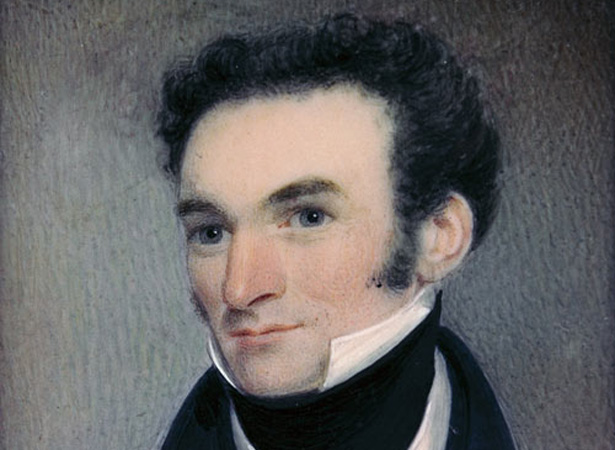
James Busby arrived in the Bay of Islands on board HMS Imogene. His appointment as British Resident was the first tentative step along a path that led to the signing of the Treaty of Waitangi seven years later.
Until the 1830s official British interest in events in New Zealand was sporadic and most decisions were made by officials in New South Wales and missionaries on the spot.
In 1831 a petition signed by 13 northern Māori chiefs was sent to King William IV. They asked for recognition of their trading and missionary contacts with Britain, expressed fear of intervention by other nations, and requested protection from lawless British subjects.
Britain responded by appointing James Busby as the official British ‘Resident’ in 1833. His main duties, as outlined in instructions from Governor Richard Bourke of New South Wales, were to:
- protect ‘well disposed settlers and traders’
- prevent ‘outrages’ by Europeans against Māori
- apprehend escaped convicts.
Busby was given virtually no resources with which to achieve these aims. He had no troops, was not made a magistrate and had no powers of arrest. Māori nicknamed him ‘Man-o-War without guns’. Essentially he was a mediator in matters affecting only British subjects, and a race-relations conciliator in disputes between Māori and Pākehā. He was not a great success in either role.
Busby’s most significant contribution during seven years as Resident was his facilitation of two important meetings of northern chiefs. The first, in 1834, selected a New Zealand flag to be flown on ships. A hui the following year declared New Zealand independent, requested British protection and set up - at least in theory – a Confederation of United Tribes as a governing body. These were important steps towards the signing of the Treaty of Waitangi and the acquisition of British sovereignty in 1840.
In 1835 Thomas McDonnell was appointed as Additional British Resident in New Zealand. McDonnell was a retired naval officer who had established himself as a trader at Hōreke on the Hokianga Harbour, 60 km west of the Bay of Islands. McDonnell’s subsequent resignation after a quarrel with Busby underlined the generally inauspicious nature of the first years of Britain’s formal relationship with New Zealand.
Read more on NZHistory
Choosing a flag – Taming the frontierThe Treaty in brief – The Treaty in briefTreaty events 1800-49 – Treaty timelinePolitical and constitutional timeline – Political and constitutional timelineJames BusbyUnited Tribes flag – Flags of New ZealandHistory of New Zealand, 1769-1914 – A history of New Zealand 1769-1914James Busby – Taming the frontierDeclaration of Independence – He Whakaputanga - Declaration of Independence
External links
How to cite this page
'James Busby arrives in the Bay of Islands', URL: https://nzhistory.govt.nz/james-busby-arrives-as-first-official-british-resident, (Ministry for Culture and Heritage), updated 6-Nov-2020
